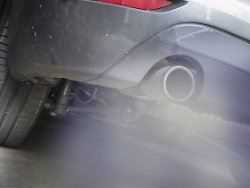Friday, May 21, 2021
Bundestag adopts quota
Fuels have to become more climate-friendly
The share of renewable energies in transport must increase, while the consumption of palm oil should decrease. This is decided by the Bundestag and, with a sharp greenhouse gas reduction quota, implements the EU’s demands more clearly than necessary. That will have consequences for drivers.
The Bundestag has tightened the climate requirements for fuels even beyond the government plans. The majority of the Union and the SPD decided on Friday night that a so-called greenhouse gas reduction rate of 25 percent for gasoline or diesel must be achieved by 2030. Currently it is six percent due to the addition of bio-fuels.
The Ministry of the Environment had actually planned a quota of 22 percent, which was also confirmed by the cabinet. The stricter target has now been implemented so that the existing fleet of gasoline or diesel vehicles can also be used in a comparatively climate-friendly manner. Since fuel from biological residues or hydrogen is scarce, this is likely to make fuel even more expensive.
Environmental groups are concerned that more food could be used. The chairman of the Bundestag transport committee, the Green politician Cem Özdemir, also referred to scarce resources. So-called e-fuels, which should be used on the basis of “green” generated hydrogen, would require enormous amounts of solar or wind power for production. According to a response from the Ministry of the Environment to the Greens’ request, seven times the amount of green electricity generated in Germany would be necessary to convert all diesel, petrol and kerosene requirements to such electricity-based liquid fuels. Özdemir criticized: “Anyone who relies fully on inefficient e-fuels for the turnaround in traffic will get completely lost.” In the case of kerosene, this is an alternative, the admixture quota must increase to ten percent instead of the planned two percent by 2030. When it comes to cars, on the other hand, electricity must be used directly and only emission-free cars will be allowed in 2030.
With the law on the greenhouse gas reduction quota, Germany goes beyond EU requirements. Mineral oil companies must reduce the greenhouse gas emissions of the fuel by the value of the quota by adding vegetable fuels or e-fuels. “Green” electricity is also taken into account by acquiring certificates from charging station operators, for example.
However, the controversial palm oil should no longer be counted as of 2023. Here, too, the Bundestag tightened the government’s draft, which had only planned for 2026.
.
